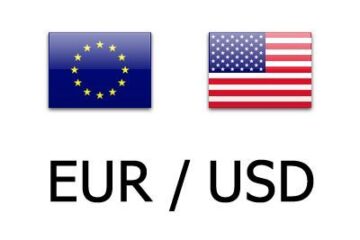Xcel Energy is a reliable electric utility stock. The market valuation just slipped below an important metric that’s not obvious on stock screeners.
Xcel Energy (XEL) – Get Xcel Energy Inc. Report is an electric utility that boasts a 2.7% annual dividend yield near current prices. The Minneapolis company serves customers in eight states and owns some of the most favorable geography in North America for onshore wind and utility-scale solar assets.
By 2025, the company expects to generate 53% of its electricity from renewable power sources, which should be nearly double the national average at that time.
All those factors and more have helped Xcel Energy secure a spot in my portfolio as an important anchor position. When it comes to deciding which stocks earn priority for new funds, there’s a simple and unique threshold investors can use for this electric utility — and it would never appear on a stock screener.
Understanding the Rate Base
When Xcel Energy’s market valuation falls below its near-term rate base, then it’s an attractive time to buy the stock. Let’s unpack that idea.
An electric utility invests capital to build and maintain infrastructure assets across power generation, transmission, and distribution. The total value of these assets is called the rate base. Why is this metric important?
Electricity prices are set by state regulators. They’re determined by a formula that considers the system costs (fuel, labor, financing, and so on) and applies a guaranteed rate of return on assets in specific categories (power generation, transmission, and distribution).
Therefore, the easiest way for a utility to increase profit over time is to continue making capital investments in its infrastructure. This allows critical infrastructure to be maintained with the efficiency of private markets but with oversight from government to protect ratepayers.
Now, not all electric utilities can increase their rate bases effortlessly. For example, operators in the Northeast or Mid-Atlantic face aging populations and relatively poor renewable-energy potential, and the growth outlooks for electricity demand in those territories is low or negative. Regional discrepancies in regulatory attitudes and energy exports to neighboring states can impact opportunities, too.
Xcel Energy boasts an envious combination of the factors that drive rate-base growth.
It operates in regions with favorable population-growth projections, ample renewable-energy potential, and state regulatory bodies with ambitious zero-carbon energy targets.
It’s also important to point out that electricity demand is driven by residential, commercial, and industrial customers. The company’s territories are home to a healthy swath of industrial customers in oil and gas services, steelmaking, biomanufacturing, and more.
Put simply, Xcel Energy has one of the most favorable rate-base-growth trajectories of any electric utility. And that’s before considering the potential to serve electric vehicle demand in its territories.
When Should Xcel Energy Be Prioritized for Investment?
The dividend stock’s market capitalization should sit at a slight premium to its rate base, which provides a relatively straightforward way to gauge how attractive an investment is at a given time.
Xcel Energy expects its rate base to reach $39.2 billion in 2022, $41.7 billion in 2023, and $44.4 billion in 2024. If incremental investments are triggered by favorable regulatory decisions, then the electric utility estimates its rate base could reach as much as $51.2 billion by 2026.
The company’s rate-base projections have historically underestimated the actual value of its infrastructure assets. These projections can be found in investor presentations and regulatory filings.
The company’s current market cap recently tumbled to $35.5 billion, which means the expected rate base for the end of 2022 is 10% higher. Look even further into the future and the expected rate base for 2026, including incremental investment scenarios, is 44% higher than the recent market cap.
Each time the market valuation has fallen more than 10% below its expected year-ahead rate base in the past decade, the shares have climbed back to match or exceed the rate base.
Investing doesn’t get much easier than that.
This time could be a little different – at least in the near term. Investors should keep in mind that the volatility in the broader stock market could keep the shares subdued for now.
Although the price-to-earnings multiple of utility stocks tends to be above that of the S&P 500 at any given time, Xcel Energy’s current multiple of 21 could be considered expensive. Those arguments might gain traction if the index’s major constituents see growth stall or tumble during the upcoming recession.
Nonetheless, shares of Xcel Energy have easily outperformed the S&P 500 and most peers over the long haul. If you’re interested in an investment that can beat inflation and outperform cash savings, then keep an eye on the relationship between this company’s market cap and rate base.


